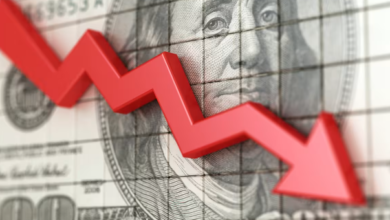Should You Refinance Your Mortgage?


Editor’s Note: This story originally appeared on Point2.
Planning to refinance your mortgage? Be sure to do your research beforehand!
Getting it wrong can actually end up costing you more in the long run.
When you refinance your mortgage, you’re basically taking out a new loan to pay off and replace your original one. To do this, you’ll need to visit a lender (it can be a different one) and make an application in much the same way as when you initially took out your mortgage.
With that in mind, let’s look at why you might want to refinance, and see whether it’s the right choice for you.
Reduced Interest Rates

By refinancing, you may be able to take advantage of lower interest rates than when you initially took out a mortgage. This can lead to impressive reductions in your monthly mortgage payments.
But, the most significant results are gained in the long run, particularly if you plan to remain in your current home for years.
Switch to a Fixed-Rate Loan

If your current loan is an adjustable-rate mortgage (ARM), you may be concerned that increasing interest rates will lead you to pay increasingly higher payments.
Refinancing your mortgage can allow you to switch to a fixed-rate mortgage (FRM) instead, giving you peace of mind that your payments won’t fluctuate.
Increasing Your Loan Term

If you’ve reached a point where your monthly repayments are becoming a burden, you may refinance your mortgage to extend the term.
For example, if you’ve owned your house for 10 years, you can take out a new 30-year loan on the outstanding balance of the original loan. It’s a good way to gain a little breathing space, but it will lead you to pay more in interest overall.
Cashing Out

By refinancing, you can also tap into the equity you’ve built up in your home. This works by taking out a new loan that covers the original mortgage in its entirety. The equity you’ve already built up will be paid out to you in cash.
The Potential Downsides of Refinancing

So far, refinancing your mortgage sounds like the answer to all your financial woes.
However, there are some downsides to consider, covered next.
Expensive Closing Costs

On average, you’ll need to pay between 2% and 6% of the total loan amount in closing costs, plus taxes. This commonly results in several thousands of dollars that need to be paid upfront, which might not be possible if you’re already struggling financially.
In some cases, however, you can roll these costs into your loan, though doing so will result in higher repayments.
Higher Costs in the Long Run and Reduced Home Equity

Refinancing can often feel like a great way to deal with today’s problems. However, the long-term costs can start to pile up.
If you’ve cashed out your equity and taken out a new 30-year loan, you’re essentially back to square one and will end up paying much more in interest.
When Not to Refinance Your Mortgage

Refinancing isn’t always the best solution to your problems, and there are plenty of times when it’s a bad idea. Following are a few.
If You Plan to Move in the Near Future

If you hope to sell and relocate, it’s not a very wise financial decision as you’ll pay a lot in closing costs and might not see any real reward in the short term.
When you do sell, you’ll have even more closing costs to deal with.
If Your Credit Score Is Low

If your credit score isn’t in great shape, you might not get those low interest rates you were hoping for.
Plus, each application counts as a hard check, lowering your score further, possibly with no real gain.
If You Only Need a Small Amount of Cash

Cashing out your home equity can sound appealing but starting your mortgage from scratch can be a bad decision in the long run. If you don’t need a considerable amount of cash at once, a HELOC (home equity line of credit) might be a better alternative.
Source link





